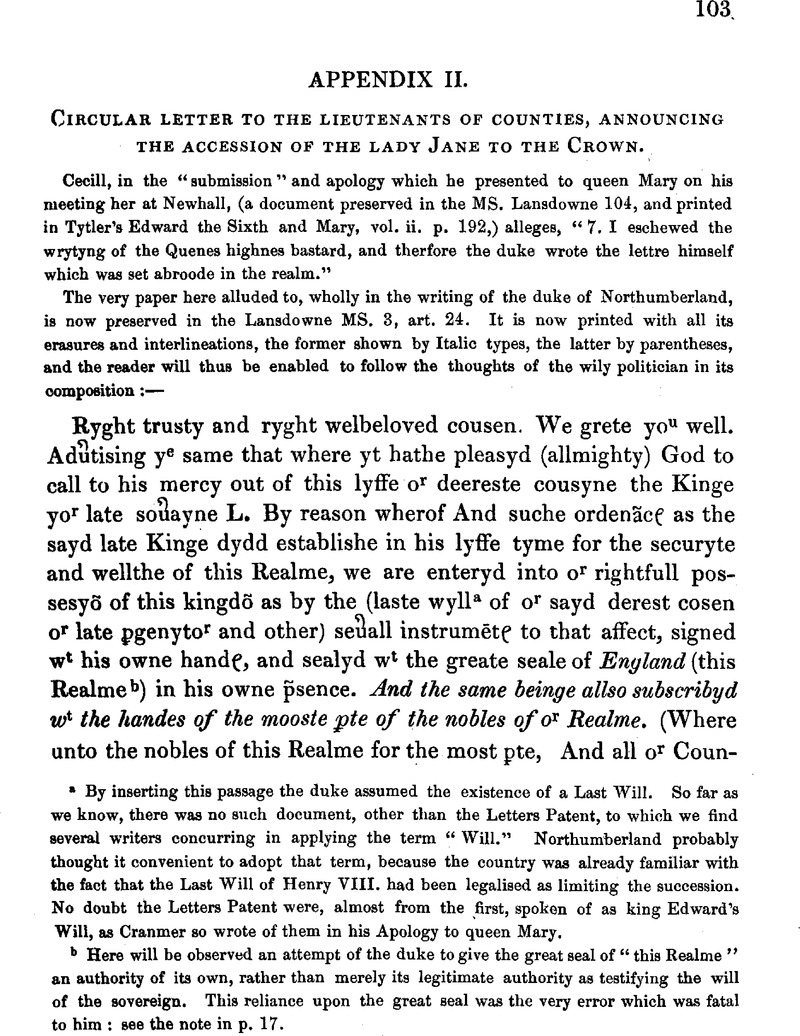No CrossRef data available.
Published online by Cambridge University Press: 23 February 2010

page 103 note a By inserting this passage the duke assumed the existence of a Last Will. So far as we know, there was no such document, other than the Letters Patent, to which we find several writers concurring in applying the term “Will.” Northumberland probably thought it convenient to adopt that term, because the country was already familiar with the fact that the Last Will of Henry VIII. had been legalised as limiting the succession. No doubt the Letters Patent were, almost from the first, spoken of as king Edward's Will, as Cranmer so wrote of them in his Apology to queen Mary.
page 103 note b Here will be observed an attempt of the duke to give the great seal of “this Realme ” an authority of its own, rather than merely its legitimate authority as testifying the will of the sovereign. This reliance upon the great seal was the very error which was fatal t o him: see the note in p. 17.
page 104 note a This alteration of the name of " God " to " the heavenly Lorde," is not wholly undeserving of observation, because the latter expression was considered most acceptable to the Protestants. Bishop Gardiner, when examining a prisoner, is represented by Poxe as speaking contemptuously of such as had " the Lord " always in their mouths. In the letter as finally sent out, the expression was " the heavenly Lord and King."